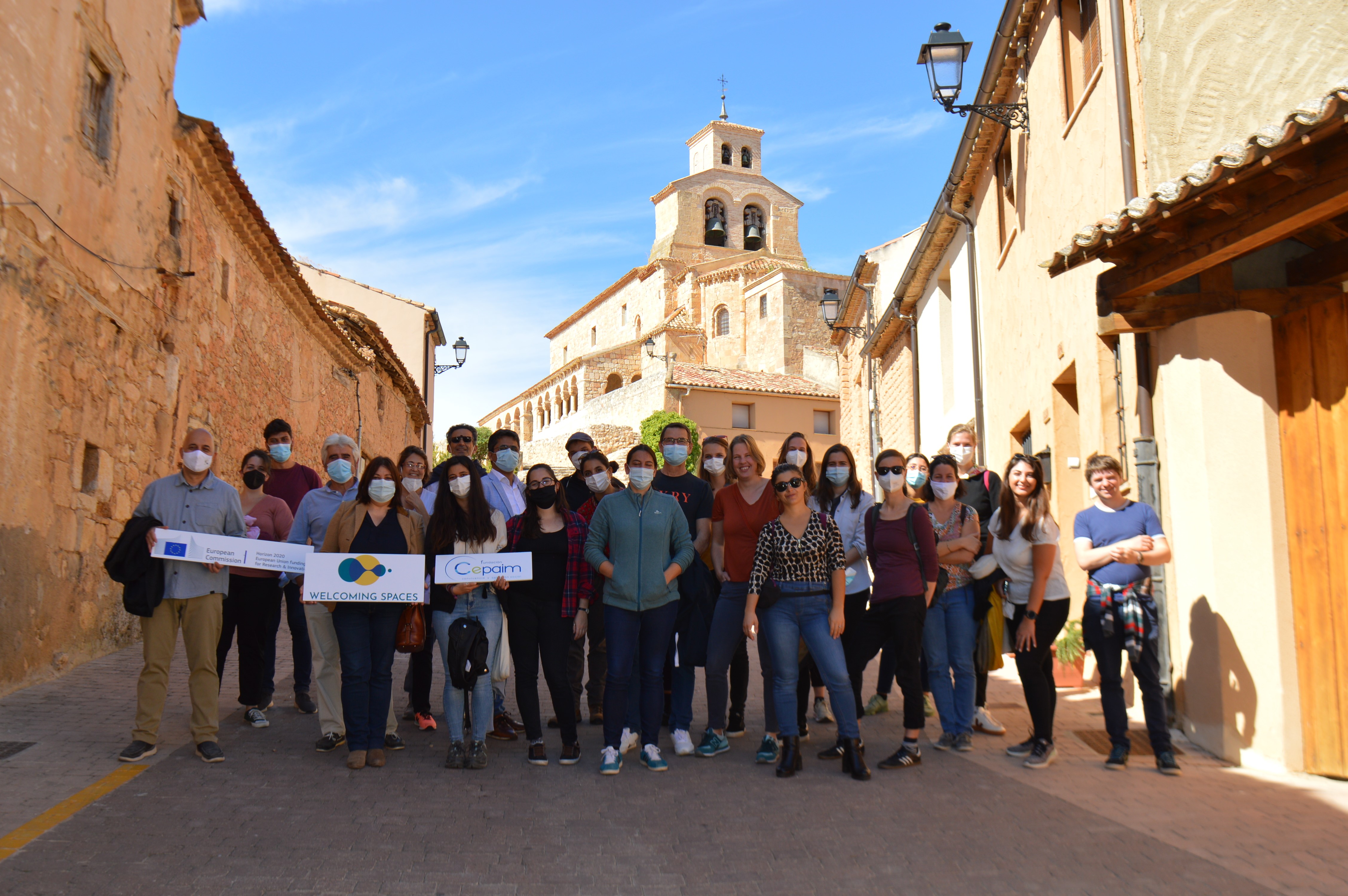From the 27th of September until the 1st of October, the Dutch University of Utrecht organised an International PhD school on migration and socioecological change in the Spanish city of Soria, in the eastern autonomous region of Castile-Leon. In collaboration with the partners of Welcoming Spaces Consortium, the school’s special focus was to analyze the willingly participation of non-EU migrants in the fair and sustainable development of European depopulating localities other than large cities, and the political dynamic behind it.
The international PhD school consisted of three main components over five days:
Firstly, peer-review sessions in which 18 participating PhD researchers reviewed other PhD fellow’s papers and provided written feedback on conceptual and methodological questions.
Secondly, a field visit to two localities in the province of Soria took place. Yanguas, a remote town located more than 50 kilometers north of Soria's provincial capital, and San Esteban de Gormaz, located in the province's western region. Both town mayors accompanied the PhD School participants during the tour of respective towns and described the welcoming nature and hospitality of their depopulating communities, as well as the challenges they face.
Thirdly, panel discussions on migration and socioecological change, including conceptual debates and analytical approaches.
Ali Ahmad Safi, PhD researcher at the Department for Migration and Globalization at Danube University Krems, Austria actively took part in the week-long international PhD School. He presented his ongoing research on ‘The transnational engagement of Afghan diaspora organizations: Drivers of diasporic specialization’. During the various peer-review sessions, Safi received rigorous feedback on his research topic and future research plans from other PhD colleagues.
The interdisciplinary panel discussions included many topics, namely the adaptation and integration of non-EU migrants in the EU; climate and labor migration; migration and social planning as well as the whole-of-community perspective on migrant participation in European small and mid-sized cities and rural areas; media representation; bottom-up regional development planning and lessons from European shrinking regions, generational shift and place-making in rural Europe; and finally civic innovation and migration studies. An interactive Q&A session followed each panel.

The participants of International PhD School on Migration and Socioecological Change visited San Esteban de Gormaz as part of their field visit on the 30th of September 2021.
Contact
Ali Ahmad Safi, MA